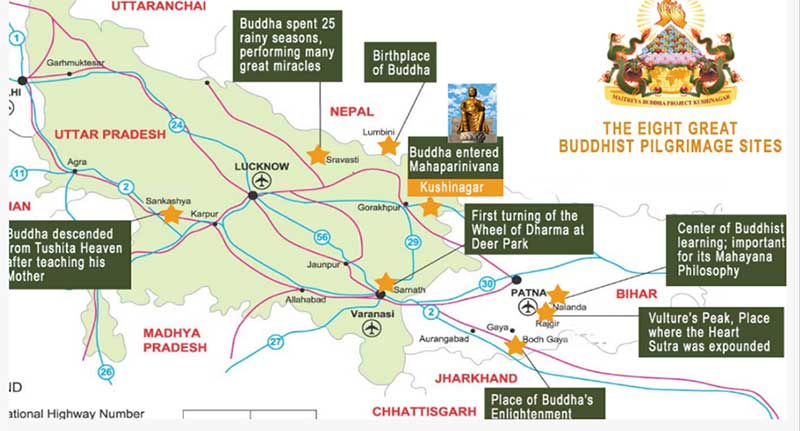Date : 12/06/2023
Relevance: GS Paper 2:Intrernatinal relations-Soft Diplomacy
Key Words: Soft power diplomacy, Buddhism revival, transnational connections, cultural connections, shared heritage, Buddhist tourism, Nalanda University,
Context-
- India recently hosted a global Buddhist summit in New Delhi, which saw the participation of key figures from the global Buddhist community, including the Dalai Lama.
- The government adopted the Panchamrit principles to guide its foreign policy, in actively promoting India’s image as a rising global power. Its fifth principle is sanskriti evam sabhyata (cultural and civilisational links).
What is soft power diplomacy?
- Soft power is the ability to obtain preferred outcomes by attraction rather than coercion or payment. Soft power diplomacy refers to the use of cultural, social, and economic means to influence the attitudes and behaviours of other countries, rather than relying solely on military or economic coercion. The concept of soft power was coined by Joseph Nye in the 1990s.
- Examples of soft power diplomacy include cultural exchanges, educational programs, humanitarian aid, and public diplomacy campaigns.
India's Utilization of Buddhism:
- Buddhism has provided India with an identity of peace and tranquility, particularly during the formation of the Republic amidst religious violence between Hinduism and Islam.
- Indian Prime Ministers, including Jawaharlal Nehru and recent leaders, have emphasized the shared Buddhist heritage in official international speeches, promoting cultural connections.
- India is home to seven of the eight most important Buddhist sites globally, making it a significant destination for Buddhist tourism.
- Organization of International Conferences: India has organized international conferences and convened councils that facilitate interaction among Buddhist followers across sectarian and national boundaries. Notable events include the "Buddhism in the 21st Century" conference in Rajgir (2017) and the "5th International Buddhist Conclave" in Varanasi (2016), both fostering dialogue and collaboration.
- Nalanda University: The university aims to reestablish Nalanda as a center for learning and promote scholarly exchanges among Buddhist nations.
China's Utilization of Buddhism:
- With 245 million Buddhists, numerous monasteries, temples, monks, and nuns, China considers Buddhism as an important element of its soft power strategy.
- The state religious system under Xi Jinping has incorporated religious aspects into China's cultural and linguistic diplomacy to support its political and economic influence abroad.
- China adopts a flexible approach, varying its strategies depending on the target country's Buddhist-majority status, Western influence, or its position as a regional competitor.
- China leverages Buddhist narratives alongside infrastructure investments, as observed in Sri Lanka and other Buddhist countries in Southeast Asia, recognizing the impact of Buddhism on society and employing it as a tool of soft power.
Geopolitical Implications:
- India focuses on restoring and promoting its own Buddhist sites, China effectively uses Buddhist diplomacy to engage neighboring countries and gain legitimacy for its Belt and Road Initiative.
- China's influence in the film industry, particularly in Hollywood, has allowed it to dominate the narrative around Buddhism through cinema, whereas India has not effectively utilized this domain.
Conclusion:
To enhance its soft power diplomacy through Buddhism, India needs to promote connections with other Buddhist schools of thought, such as Nagarjuna Buddhism, and emphasize effective implementation of projects like Nalanda University. Proper management of tourist sites is crucial for the success of the Buddhist Circuit Project. By leveraging its cultural influence, India can strengthen its position in the global arena and foster better relations with Buddhist-majority countries, contributing to regional stability and harmony.
Expected Question in UPSC/PSC Examination;
- Question 1: Discuss the geopolitical strategies of India and China in utilizing Buddhism as a tool of soft power diplomacy. Examine the initiatives taken by India to promote cultural connections and enhance its soft power influence.
- Question 2: Evaluate the significance of Buddhist tourism in India and its potential for enhancing the country's soft power. Discuss the measures that can be taken to further develop and promote the Buddhist Circuit Project.
Source : The Hindu








